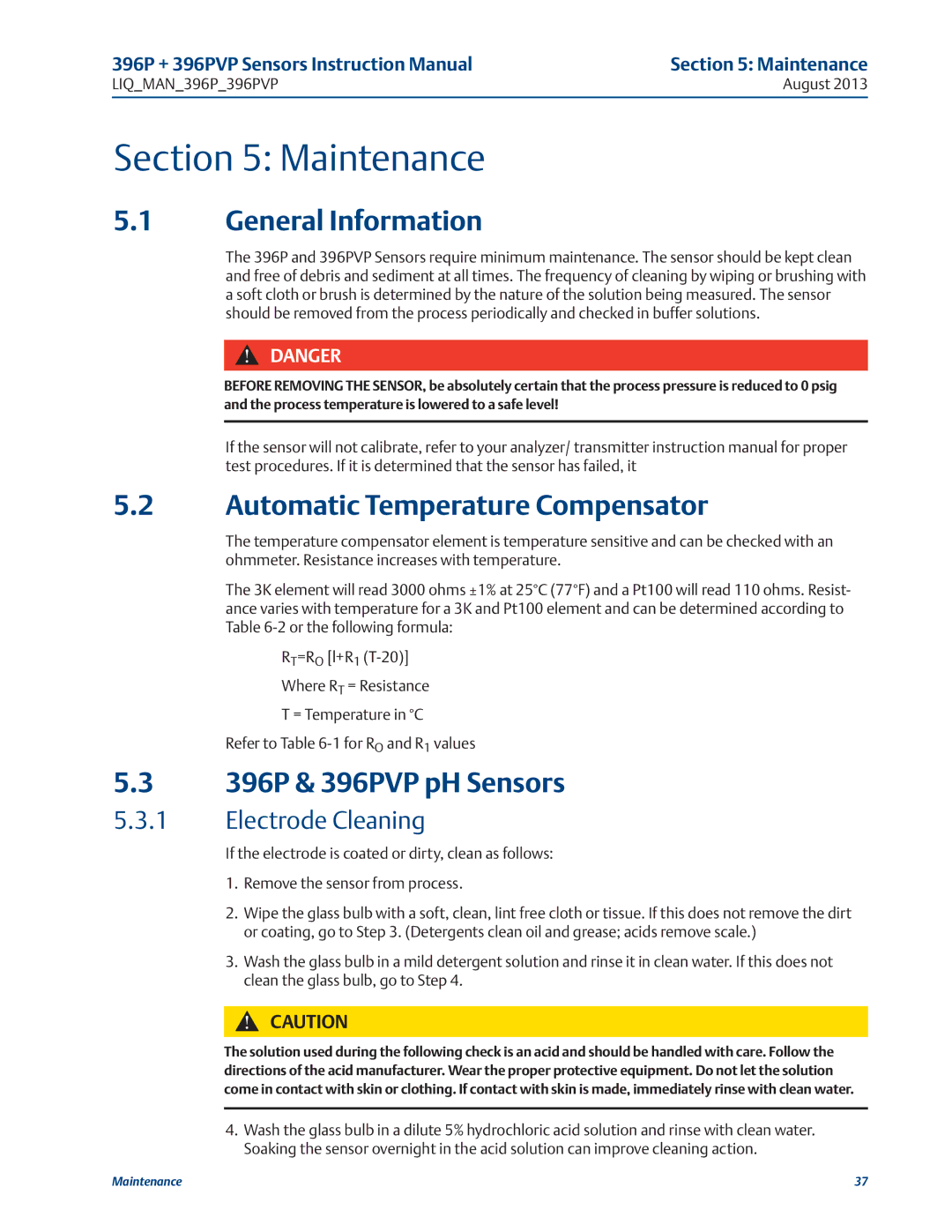
396P + 396PVP Sensors Instruction Manual | Section 5: Maintenance |
LIQ_MAN_396P_396PVP | August 2013 |
|
|
Section 5: Maintenance
5.1General Information
The 396P and 396PVP Sensors require minimum maintenance. The sensor should be kept clean and free of debris and sediment at all times. The frequency of cleaning by wiping or brushing with a soft cloth or brush is determined by the nature of the solution being measured. The sensor should be removed from the process periodically and checked in buffer solutions.
DANGER
BEFORE REMOVING THE SENSOR, be absolutely certain that the process pressure is reduced to 0 psig and the process temperature is lowered to a safe level!
If the sensor will not calibrate, refer to your analyzer/ transmitter instruction manual for proper test procedures. If it is determined that the sensor has failed, it
5.2Automatic Temperature Compensator
The temperature compensator element is temp erature sensitive and can be checked with an ohmmeter. Resistance increases with temperature.
The 3K element will read 3000 ohms ±1% at 25°C (77°F) and a Pt100 will read 110 ohms. Resist- ance varies with temperature for a 3K and Pt100 element and can be determined according to Table
RT=RO [l+R1
Where RT = Resistance
T = Temperature in °C
Refer to Table
5.3396P & 396PVP pH Sensors
5.3.1Electrode Cleaning
If the electrode is coated or dirty, clean as follows:
1.Remove the sensor from process.
2.Wipe the glass bulb with a soft, clean, lint free cloth or tissue. If this does not remove the dirt or coating, go to Step 3. (Detergents clean oil and grease; acids remove scale.)
3.Wash the glass bulb in a mild detergent solution and rinse it in clean water. If this does not clean the glass bulb, go to Step 4.
![]() CAUTION
CAUTION
The solution used during the following check is an acid and should be handled with care. Follow the directions of the acid manufacturer. Wear the proper protective equipment. Do not let the solution come in contact with skin or clothing. If contact with skin is made, immediately rinse with clean water.
4.Wash the glass bulb in a dilute 5% hydro chloric acid solution and rinse with clean water. Soaking the sensor overnight in the acid solution can improve cleaning action.
Maintenance | 37 |
